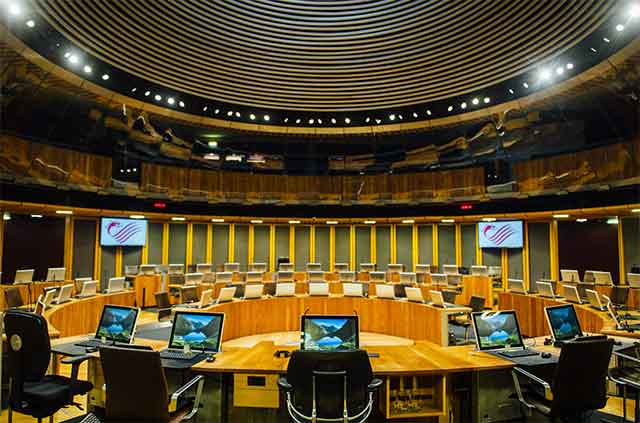Wales’ new mental health minister set out plans to improve people’s mental health, pledging to focus on reducing waiting times for support and treatment.
Sarah Murphy, who took office in July, provided an update on the Welsh Government’s draft mental health, suicide and self-harm prevention strategies after public consultations closed.
In a statement to the Senedd on October 8, Ms Murphy said the all-age mental health strategy will ensure joined-up, person-centred and needs-led support.
She told Senedd members: “The key challenges for our NHS services include workforce, digital, data and the estate – and whilst I expect to see a focus on this in the final strategy, I have asked officials to progress work in these areas now.”
The mental health minister said the suicide and self-harm prevention strategy sets out the Welsh Government’s key priority of reducing rates.
‘Greater prominence’
Ms Murphy added that consultation responses raised the need to do more to identify and address factors that increase the risks of suicide.
“The feedback was also clear that self-harm needed greater prominence,” she said.
Ms Murphy told the chamber or Siambr: “Across both strategies, it is clear we need to do more to prevent, reduce and provide better support and treatment for substance use, including removing barriers for those with co-occurring mental health conditions.”
She stated the new strategies and delivery plans will be published early in 2025, shaping the direction of travel for the next decade.
Ms Murphy, who has represented Bridgend since 2021, said the ‘111 press 2’ service, which provides mental health support, received more than 100,000 calls in its first year.
In light of world mental health day’s theme of mental health in the workplace on October 10, she added that 3,500 people accessed the government’s in-work support service in 2023/24.
‘Repeated failures’
The Conservatives’ Gareth Davies said 15% of workers are estimated to have a mental health condition and it is the fifth most common reason for sickness absence.
The shadow mental health minister warned that the new strategies are “long overdue”.
He said: “We need assurances that there will be a focus on delivery. With previous mental health strategies we have not seen the results … with repeated failures in delivery.”
Mr Davies, who worked in the NHS for more than a decade, including in mental health, called for a focus on suicide “which is higher in Wales than other parts of the UK”.
The Vale of Clwyd Senedd member, an ambassador for Bipolar UK, warned that suicide happens at twice the rate in the most deprived areas compared to the least.
‘Damning indictment’
Mabon ap Gwynfor, Plaid Cymru’s shadow health secretary, described plans to close the minor injuries unit at Prince Philip Hospital in Llanelli at night as a damning indictment.
He raised comments from Jen Caton, chief executive of Llanelli Mind, warning the change will harm access to mental health support.
Mr ap Gwynfor said: “There is a great deal more to be done to ensure that the provision of mental health services is proportionate to the needs of our population.”
He told the Senedd the number of mental health beds decreased from more than 2,000 in 2010 to 1,271 this year, “which is the lowest-ever level of capacity”.
Mr ap Gwynfor, who represents Dwyfor Meirionnydd, called for the law on safe staffing levels in the health service to be extended to include mental health nurses.
‘Lost generation’
James Evans raised concerns about a rise in body dysmorphia caused by digitally altered images on social media platforms such as Facebook, Instagram and TikTok.
The Tory MS for Brecon and Radnorshire said young people are increasingly seeking cosmetic surgery, which could damage their mental health in years to come.
Plaid Cymru’s Luke Fletcher warned of a “lost generation” when it comes to mental health, raising concerns about male suicide rates in his South Wales West region.
John Griffiths, who represents Newport East, highlighted plans for a new Welsh Government-funded health and wellbeing Centre in Ringland.
His Labour colleague Jenny Rathbone welcomed more co-production of services, saying: “It’s crucial we don’t just tell people, we actually have to find out what they need and want.”

